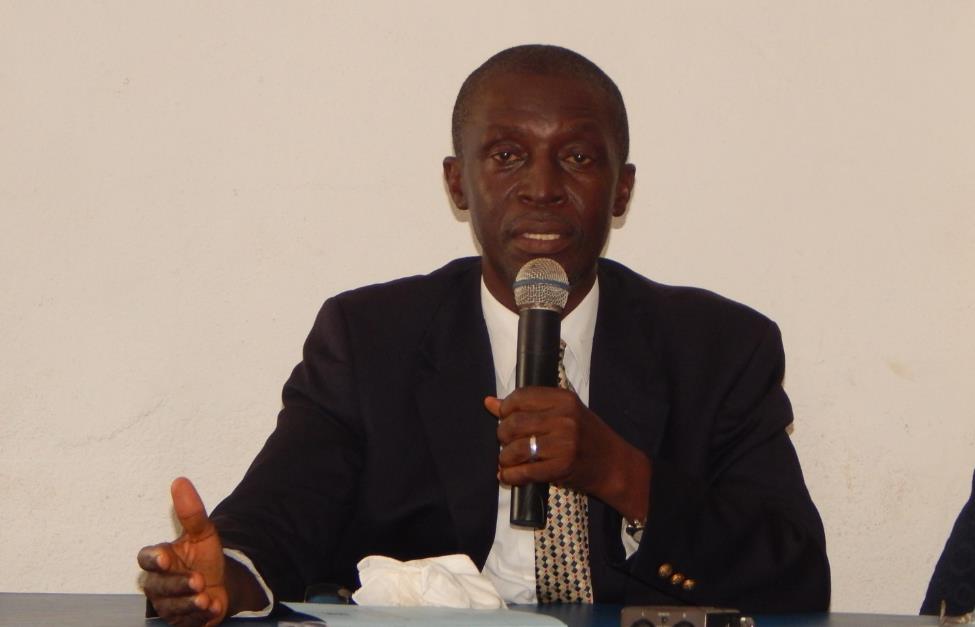MONROVIA, Montserrado – The most surprising result for Liberia in the 2016 iteration of the Ibrahim Index of African Governance was that Gender was the only subcategory in which Liberia decreased in performance over the past decade.
In a speech on Wednesday, human rights lawyer and former solicitor general, Tiawan Gongloe, blamed Liberian women and President Ellen Johnson Sirleaf for the continual underrepresentation of women in government, saying that the president could have substantially increased female participation in government if she wanted to.
In 2005, Liberia elected the first female African head of state, but gender disparity in government persists. Although with a female president, there are currently only three females and 16 males occupying cabinet positions in the executive. Among 103 legislators, women also only occupy three seats in the Senate and nine seats in the House of Representatives. The gender disparity is seen at all levels of governance.
An affirmative action bill seeking to create five additional seats for women in the Legislature still lingers in the corridors of the first branch of government, despite a push by some interest groups.
Gongloe, speaking at a gathering of a group of women on Wednesday, said amid strives to promote gender balance in government, women have not done enough. He said women are their own problem.
“The population in this country shows that women and men are almost equal; so, if women were to make the decision that they will put women in the legislature, and they are unanimous about it, they will succeed. In fact, they will get men to vote for them,†he said.
“Because you are not together, you have to take some of the blame, and work hard yourselves and you will make it.â€
He said Sirleaf would owe no one an apology if she would have selected a cabinet that was 90 percent women because the reverse has been the case for long.
“Women have not been much in [the] cabinet before; at least we had a time where we should have had a government where women would say, ‘This is our time; that time was our time and we enjoyed it,’†he said. “I don’t know when y’all will say that, but y’all lost it.â€
He said it would have also not been wrong if the president, through affirmative action policies, would have provided more scholarship and educational opportunities exclusively for women, because they’ve been kept behind for long.
With such action, he said more women would have received education to compete with men in all sectors of society.
Referencing former French President Francois Hollande, who had a gender-balanced cabinet, the human rights lawyer said there is a long history of men doing more for women than women themselves will do for themselves.
Commenting on the possibility of more women being confirmed by a senate dominated by males, Gongloe said history has shown that anything the president wants passed by the legislature under the current regime cannot be rejected.
He said Sirleaf has had many ways to push for more women cabinet; either by encouraging senators to recommend women from their counties for cabinet positions or by using the bully pulpit of the presidency to pit the public against male lawmakers hindering the confirmation of female appointees.
“She did not even make the attempt, so she will have no excuse,†he pointed out.
Currently, several women are aspiring to contest for elected positions in the upcoming October elections.
Among them are Macdella Cooper of the Union of Liberian Democrats and Gladys Beyan of the Freedom Democratic Party, who are presidential candidates. Senator Jewel Howard Taylor is running as vice standard bearer for the Coalition for Democratic Change and there are over 100 other women running for legislative seats.
The new elections law provides that political parties, coalitions submitting its candidates for an election should endeavor to ensure that the governing body and its list of candidates have no less than 30 percent of its members from each gender.
Oscar Bloh, the chairman of the Election Coordinating Committee, an umbrella of civil society groups working on elections, said the high fees being charged by political parties and coalitions for primaries may hinder the participation of most female aspirants.
“The primaries do not even guarantee a fair process or your participation in the elections,†Bloh said.
He said while there are smaller parties that are much reasonable about fees for primaries, more women aspirants are not willing to go with the smaller parties.
If fewer women are contesting the elections because of their failure to succeed in their party primaries, in addition to qualifying over the code of conduct, he said the quest for increased women representation in government would not be realized.
The elections law also provides that the list of candidates sent by a political party to the National Elections Commission for an election must include a candidate for at least half of all the constituencies in the election. Parties failing to meet the benchmark are supposed to be banned from contesting at least two succeeding elections.
The former president of the Association of Female Lawyers of Liberia, Zeor Bernard, called on women not to be discouraged from participating in politics. Bernard wants women to get more involved in local intellectual engagements to build their capacities for electoral processes and be persistent.
Featured photo by Gbatemah Senah



